news
Sanwo-Olu’s development agenda for Lagos
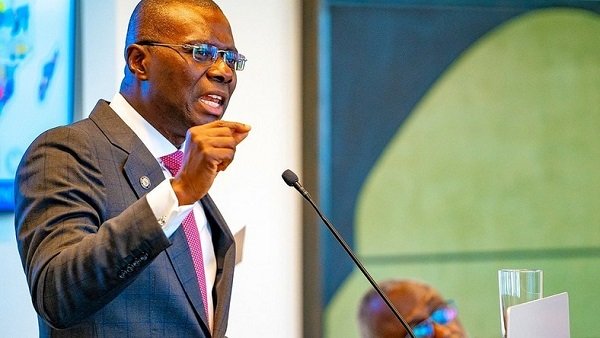

At the outset, the perception of many Lagosians about the Babajide Sanwo-Olu administration was not entirely a positive one. Based on the performance of his predecessors in office since 1999, Lagosians were not convinced that he could step onto their shoes.
Given the mountain of work in all sectors in Lagos somehow Governor Sanwo-Olu’s gentle mien did not fit into the mold of a performer in the eyes of some residents.
But, almost one year after, the ruling All Progressives Congress (APC) in Lagos has once again proved critics wrong.
Since the inception of the administration, Governor Sanwo-Olu has been working quietly in several sectors; to continue from where his immediate processor in office, Akinwinmi Ambode stopped, and also to initiate new policies to up the ante in the development of Lagos.
Deputy Governor Obafemi Hamzat recently unfolded some of the blueprints of the administration, sector by sector, in an interview with the editorial team of the News Agency of Nigeria (NAN).
In the education sector, for instance, Dr. Hamzat said the administration has embarked on a policy reform, which is dubbed ‘Eko Excel’, the state is re-engineering its teaching methods and also adopting a holistic approach to tackling challenges in the sector, to bring out the best in the pupils.
He said: “We started with 300 schools. What that means is that all the primary school teachers will have a tablet that allows them to concentrate on teaching so that they do not need to do all the teachers note that needs to be done and schedule of work.
We have trained them in knowing the essence of teaching. Just changing the essence of teaching and even how they talk to the children/address them. Even if a child does something wrong, there are ways of correcting them.
“Around the world, the focus has always been on the provision of equipment for the classrooms and to have a great classroom for learning but those things don’t teach children as it does not mean the children will come out well. You might have a great classroom but it does not make anything.
So over time, what the state government has done is to focus on the teachers as they are the common denominators. It means we must concentrate on the teachers. They are the common denominator.
“After six years the children will go but the teachers remain over and over again. So we realise that the best thing to do is to concentrate on the teachers, their welfare, skills, their training and the way they approach it. That is what Eko Excel is doing.”
The deputy governor said it is too early to assess the impact of the scheme. He added: “In two to three years’ time, we would see how the teaching method has changed. We would see how it has affected the culture of our education, the children and everything.
We would also be able to gather information better through the equipment that will help us to geo-reference. So, we can know, for instance, in class 4A in Agidingbi Primary School, 20 students came to class or 21 children came at 9 am. – so why are they coming to school late? Is it that they are living far from school?
“All this information will help us to plan well. Also, it has helped us in monitoring the time the teachers resume work.
Also, if a teacher is coming late to school, why is it so? For example, a teacher teaching in Ikorodu and living in Oworonshoki, so why can’t we just move the teacher to around the place he or she lives for convenience and good delivery on the job.
“We are also finding out that some schools have only seven children while in some schools they have up to 60. So it tells us that in some cases, maybe we are building in the wrong places.
So, maybe we need to build more classes in such areas because, in some local governments, the number of children in school is extremely small compared to some others.”
Another component of Eko Excel, the deputy governor said, would address malnutrition among school children. He said primary education is the foundation of development and that it is important to fix it.
He said studies show that 52 per cent of children under five years of age in the northern part of the country are malnourished. He said in the south the percentage is about 20.
Hamzat said while it is necessary to build roads, provide amenities and other things that it is equally important to take care of the younger population by addressing malnutrition among children between the ages of zero to five because, as doctors have told us, this is the time the brain develops.
He said: “So we have a committee on nutrition and also a department on nutrition but what is surprising is that study shows that it is not the children of the poor that are mostly malnourished. The children of the rich and middle class can actually be malnourished as well if they are not eating right because as children they like to eat anything.
“If we can reduce that number, it would be a fantastic achievement even though it is not something that people like to talk about but the impact will be good because we would now build children that are healthy and intelligent thereby the future of our country will be secured.”
On the health, he said the Lagos State Government has increased the budget to the sector by almost 70 per cent and are planning to build new hospitals across the state.
He said: “We want to make sure that every part of Lagos is covered in terms of healthcare delivery services. For instance, we are planning to build a General Hospital in Ojo; that axis doesn’t seem to have any at the moment. We are also planning to build a spinal injury hospital somewhere in Gbagada.
We are also getting people to help us design as we have been made to understand that a lot of our General Hospitals needs to be redesigned.
“For example, you go to UCH, Ibadan at night without air conditioner (AC) you feel cold because of the architectural design. It is designed so that air can pass through… that is cross ventilation. We have gotten people that design hospitals for the tropics.”
Hamzat said the government is not just interested in building new structures, but building ones that are easier to maintain and allows for ventilation.
He added: “Part of the challenge in most hospitals is that you go for the treatment of one ailment and later get infected with another thing.
So these are the questions we asked our medical team. We are not medical doctors but we know these things happen. So, we are redesigning our hospitals.”
On the hardship imposed on residents by the ban on commercial motorcycle and tricycle operators, otherwise known as Okada and Keke by the government, Dr. Hamzat said the underlying motive behind the policy is to reduce accidents on the roads and thereby preserve the lives of Lagosians.
He said: “The most important thing for us is that people must be alive before they can do anything. When life is lost, then there is really nothing else. It’s the dead end.
So for us what is important is how do we secure this society? There are details and information that the government sometimes has that you can’t even share with citizens because they won’t be able to sleep if you divulge such information.”
The deputy governor said critics of the policy have been insisting that alternatives ought to have been put in place before the ban came into effect.
He said: “But, I disagree because it will have been too late if we delayed further; if we failed to secure the lives of our children we will be very irresponsible. That is why it was restricted in certain areas where we saw the upsurge.”
On the menace of members of the National Union of Road Transport Workers (NURTW) on Lagos roads, the deputy governor said the challenge is that it is a national union recognised by law.
He said like the Association of Academic Union of Universities (ASUU), there are many things that members of the union do that the state government does not support, “but as a union recognised by law in our country, we will keep engaging them in dialogue.”
He said: “Whether we like it or not, they have some roles that they play in the transportation sector because you know what, the transportation sector is not something that private people go into without subsidy from government all over the world.
But they are doing it without such assistance, so we must find a way to make it better for them and for us as a people. The engagement must continue for us to have a peaceful society.”
The deputy governor spoke extensively on the traffic gridlock in Lagos, attributing it, for the most part, to the breakdown of vehicles, which impede the free flow of traffic.
The Lagos number two citizen also attributed the traffic gridlock to ongoing road constructions in various parts of the city. He said: “For instance, at Ojota, we are replacing the whole stretch of Ikorodu Road with concrete. At Apapa-Oshodi Expressway, we are also doing concrete.
The problem is that on that corridor, we are doing 300 metres every day but it takes 14 days to execute it properly.
So, because it takes 14 days, no vehicle can pass within those number days. It means that for a long time, that corridor would continue to experience traffic while the project is ongoing. a challenge about there.
“In fact, it is one of the reasons that we are talking to the company that maybe we should use reinforced bitumen rather than concrete, particularly as the construction work approaches Oworonshoki.”
Alaka, he added, is also experiencing a similar traffic gridlock because of the expansion project also ongoing there, it is a problem.
Because a lot of these things are happening, there will be (gridlock). “But, I think it is better to do it once and in another six or seven months, everybody will be okay,” he added.
Hamzat said the administration is taking advantage of the body of water that surrounds Lagos, by developing water transport. He said 14 boats were recently purchased and are being used to convey people in a most comfortable way.
He urged many residents along the coastal line to take advantage of the waterways to get to their destinations, and thereby reduce pressure on the roads.
His words: “We need the water not just to farm but also for transportation. The Lagos State Government just procured those 14 new boats. The beauty of it is that all those boats were built in Nigeria. Of course, we brought the engine, but we have been able to build that capacity to build boats.”
Hamzat said Lagos deserves a special status because of the nature of the responsibilities it is shouldering within the Nigerian federation. He said the state is pursuing it through a bill on the floor of the Senate initiated by Senator Oluremi Tinubu.
He said: “We are pushing it; maybe we are going about it in a different way. It might not be in the newspapers. It is by talking to everybody that is involved in the process. It is really going on but in a different way. If something is not working in a particular way, you try another approach.”
On the perceived heavy borrowing in Lagos and the debt profile, he said there is no way the government can meet up with the huge infrastructural deficit without borrowing. He said: “There is a musician in Epe in the 1970s; he is dead now.
His name is Ligali Mukaiva; he was not educated, but he said something profound that has stuck to my memory since. I was in primary school then.
The man sang a song that any businessman that doesn’t use other people’s money will not succeed. So, the reality is, where do you get resources to build for today?
“I remember during Asiwaju Tinubu’s government when they took a bond of 15 billion. The opposition said Oh; he has mortgaged the lives of the young people.
That loan has been paid. During BRF government, we took 375 billion bonds, that bond has been paid. Without that, we cannot build the Lekki Link Bridge.”
He said Lagos gets only N8 billion or N9 billion monthly from federal allocation. “By the time you pay salaries, you only have N1 billion left. What can you do with N1 billion? So, the reality is, how do you source the find for infrastructural development?” he said.
news
Tinubu returns from Paris today, Says Onanuga

 President Bola Tinubu is set to return to Nigeria today after spending close to two weeks abroad, his Special Adviser on Information and Strategy, Bayo Onanuga, has confirmed.
President Bola Tinubu is set to return to Nigeria today after spending close to two weeks abroad, his Special Adviser on Information and Strategy, Bayo Onanuga, has confirmed.
Onanuga, in a brief post on X, wrote: “President Bola Ahmed Tinubu will return home today.”
The Presidency had earlier assured Nigerians that despite the President’s stay overseas, he remained fully engaged with national governance.
In a statement last Thursday, Onanuga explained: “The President left Paris for London at the weekend and has maintained constant communication with key government officials, overseeing critical national matters, including directives to security chiefs to address emerging threats in some parts of the country.”
He further emphasised that Tinubu’s absence was temporary and “in line with the communicated timeframe of approximately two weeks,” with his return scheduled for April 21, following the Easter holidays.
“The President’s commitment to his duties remains unwavering, and his administration continues to function effectively under his leadership.
“We appreciate the public’s concern and assure all Nigerians that governance proceeds without interruption,” the statement added.
Tinubu had departed for Paris on April 2, 2025, for what the Presidency described as a two-week working visit. According to Onanuga, the trip was intended to “appraise his administration’s mid-term performance and assess key milestones.”
news
Opeifa request for the state government to assist the Railway Police and Otti, thanks Tinubu for picking the best material to rewrite Nigeria Railway history

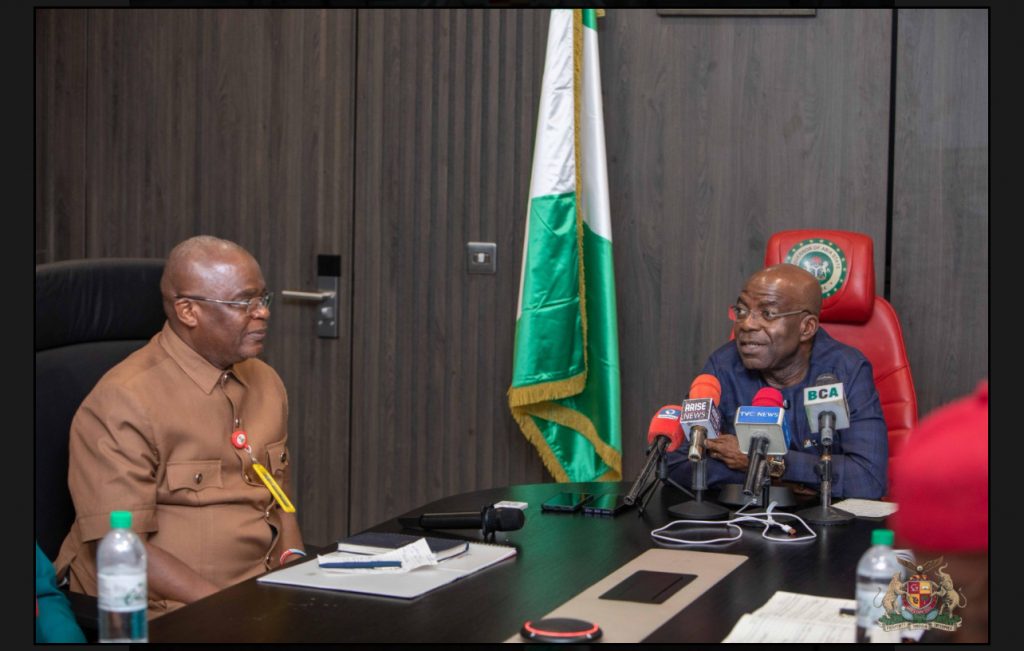 Gov. Otti describes Opeifa as a thorough-bred professional ready to rewrite Nigeria Railway history
Gov. Otti describes Opeifa as a thorough-bred professional ready to rewrite Nigeria Railway history
Lauds President Tinubu for picking the best material to reposition Nigeria’s oldest corporation
A deserving commendation came the way of the Managing Director of the Nigerian Railway Corporation, Dr Kayode Opeifa, as the Abia State Governor, His Excellency, Dr. Alex Otti, described him as an exceptional professional, most suitable to lead the Nigeria’s oldest surviving public corporation.
Governor Otti spoke on Wednesday, at the Government House in Abia State, during a business visit by the MD/CEO of the Nigerian Railway Corporation, as part of his familiarization tour of the Eastern District of the Corporation.
According to Governor Otti: “I have had so many engagements with past leaders of the Nigerian Railway Corporation, you are clearly different and knows the job”. He thanked President Bola Ahmed Tinubu for appointing Dr. Opeifa to lead the Nigerian Railway Corporation, expressing assurance at his ability to deliver.
He thanked the MD/CEO for promising to synergize with the Federal Ministry of Transportation, and the State Government to see that the transformation of the transportation system in Umuahia is achieved. According to the Governor, “Umuahia Bus terminal is progressing rapidly and we felt that it is important to replicate what we have in Paignton, United Kingdom in Umuahia, by linking the train station with the Terminal to enhance intermodal transportation services.
The Governor stated that he was very happy to see that the MD/CEO is committed to taking the track from Aba to Enugu and even beyond. He recalled, with nostalgia how the train had served the people of the state and regretted the downward trends of rain services across the entire South East.
On the MD/CEO’s request for the state government to assist the Railway Police in the state, Governor Otti promised that his government will provide mobility for Aba Railway Police.
He added that the state government is always ready to support the Federal Government institutions as users of such federal institutions are people of the state, adding that his administration cannot differentiate between federal and state government workers.
news
Airlin Advocacy Commissions Jos Office, Targets 7m Members By Next Elections,Says Mohammed Gamawa
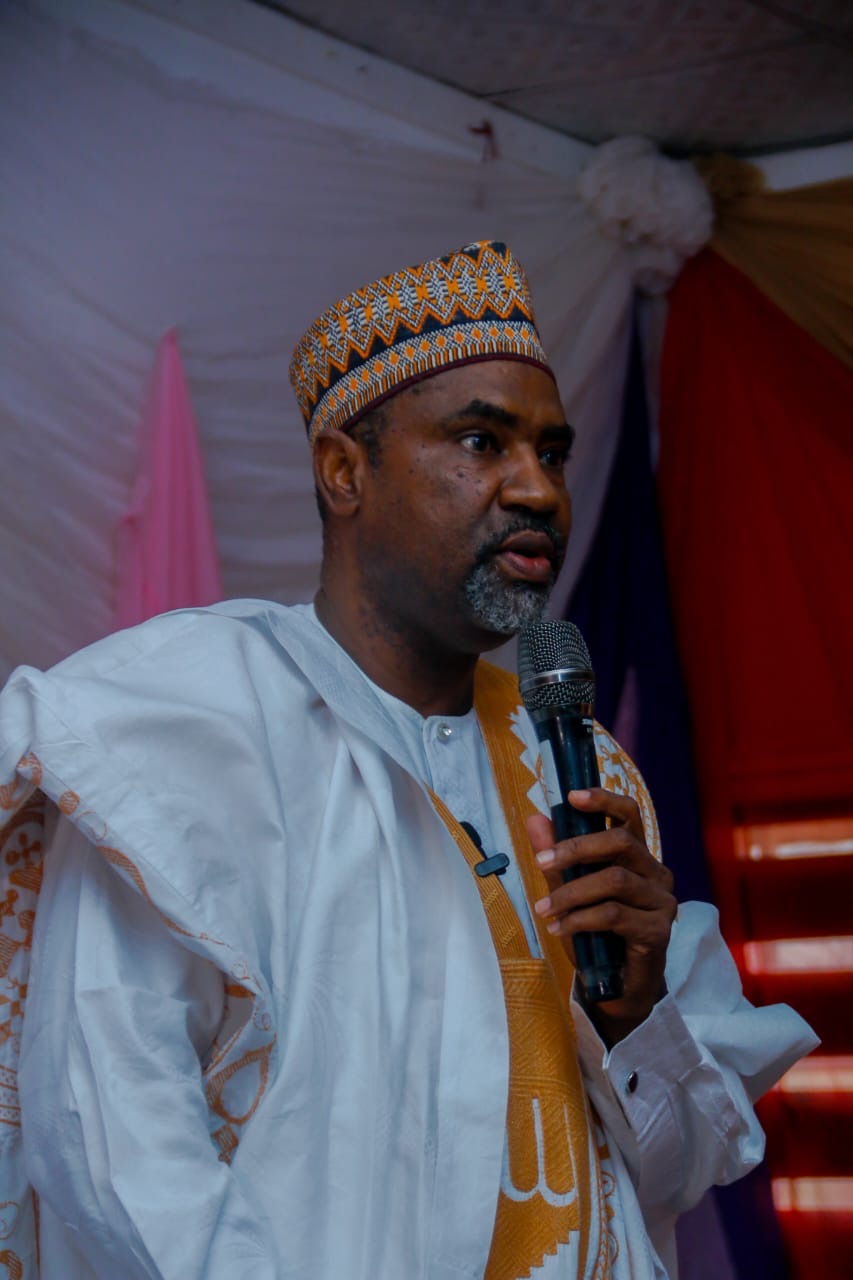
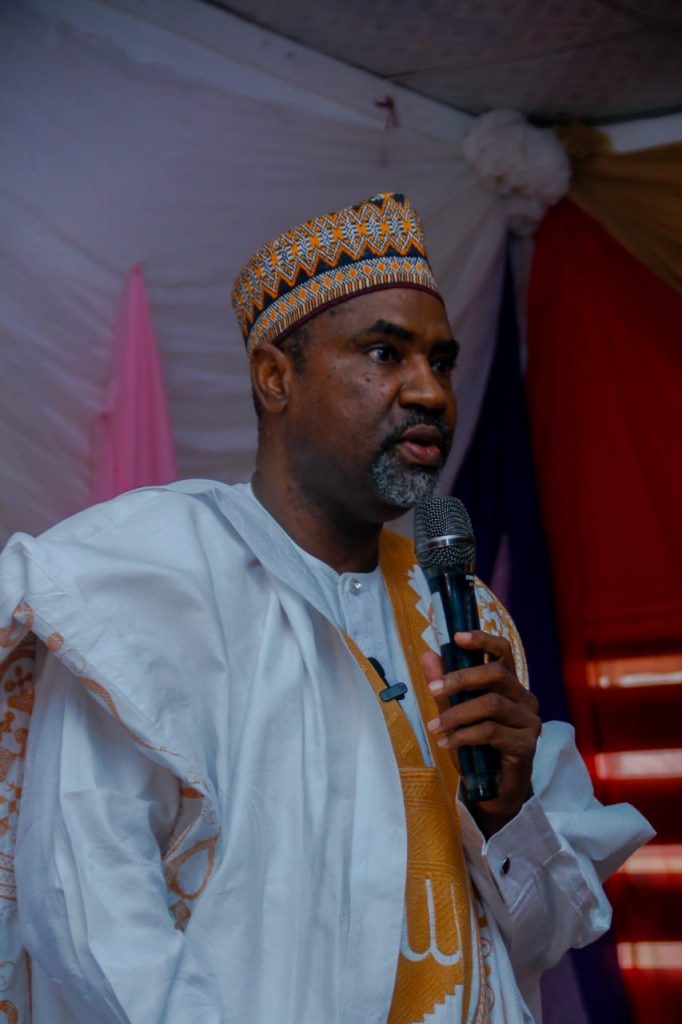 During the inauguration ceremony, the National Chairman of Airlin, Mohammed Gamawa, delivered a keynote address, emphasizing the organization’s commitment to educating Nigerians on their civic rights and responsibilities.
During the inauguration ceremony, the National Chairman of Airlin, Mohammed Gamawa, delivered a keynote address, emphasizing the organization’s commitment to educating Nigerians on their civic rights and responsibilities.
According to Gamawa, Airlin aims to bridge the gap between citizens and the principles of the rule of law by fostering a society where people understand not only their rights but also what is expected of them by the country.
“Our goal is to foster interaction among Nigerians, promote respect for the rule of law, and ensure citizens know their rights and civic responsibilities — such as voting to elect future leaders not based on materialism but based on integrity and competence,” Gamawa stated.
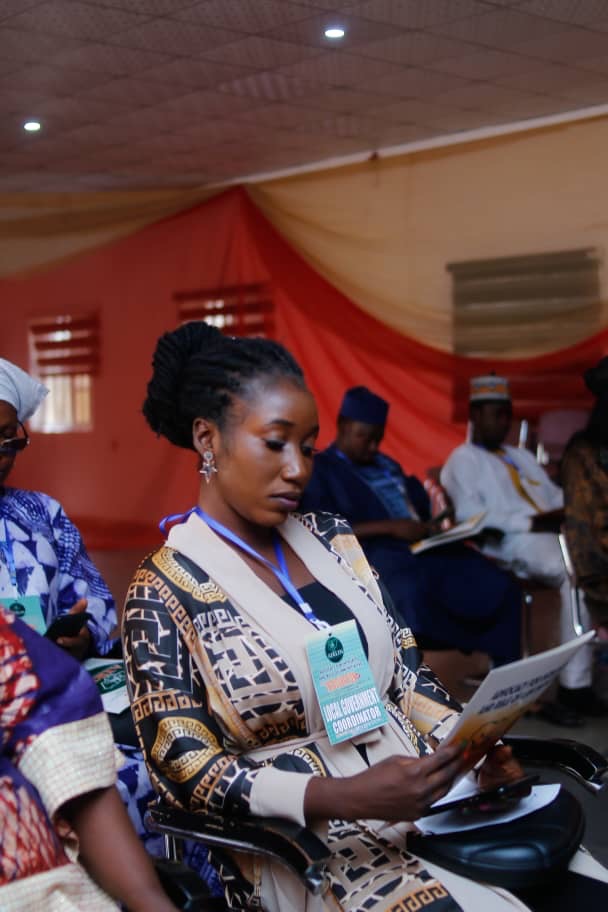
He added that understanding and exercising one’s franchise, especially during elections, must go hand in hand with being law-abiding and fully aware of civil responsibilities.
As part of its mission, Airlin is currently targeting 19 states in Northern Nigeria, with Jos becoming the 15th state to be commissioned.
The ceremony also featured the appointment of state and local government coordinators who will help drive the organization’s grassroots advocacy efforts.
With a current membership base of 2.1 million Nigerians aged 18 and above, Airlin projects a significant growth trajectory, aiming to reach 7 million members before the next general elections.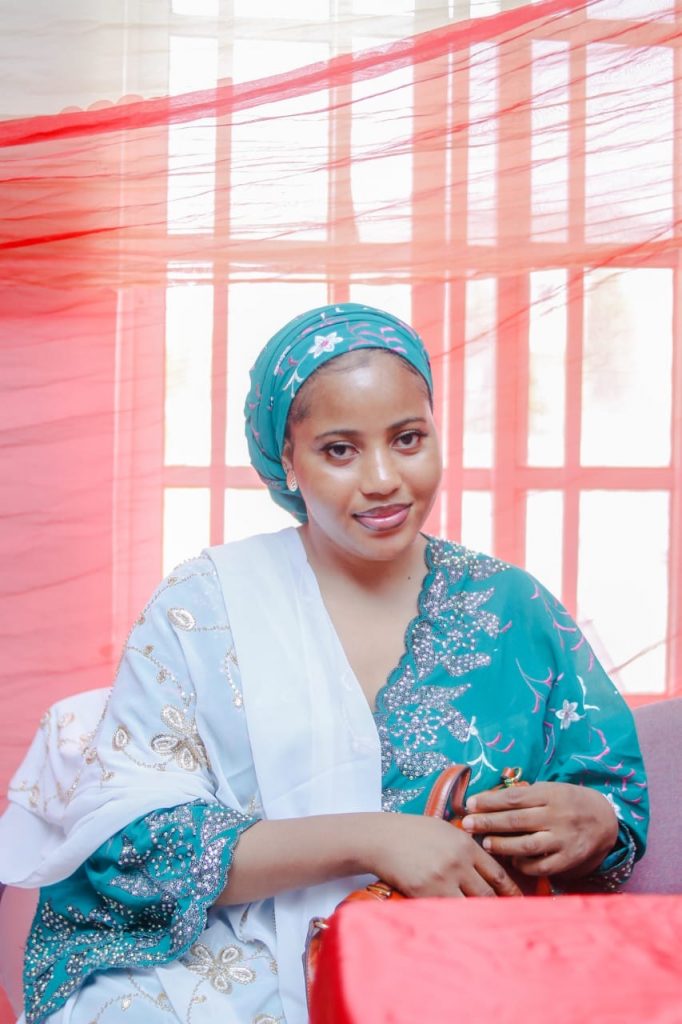
-

 news4 years ago
news4 years agoUPDATE: #ENDSARS: CCTV footage of Lekki shootings intact – Says Sanwo – Olu
-

 news1 year ago
news1 year agoEnvironmental Pollutions : OGONI COMMUNITY CRIES OUT, THREATENS TO SHUT DOWN FIRSTBANK,SHELL OIL COMPANY OPERATIONS FOR NOT PAYING COURT AWARD
-
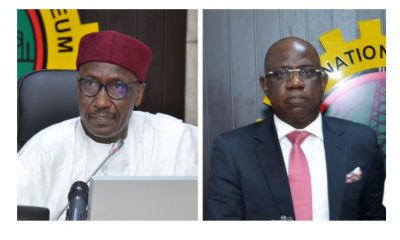
 news3 weeks ago
news3 weeks agoBreaking : TInubu appoints Bashir Ojulari as new CEO group of NNPC and GMD mele kyari get sacked, Says Onanuga
-
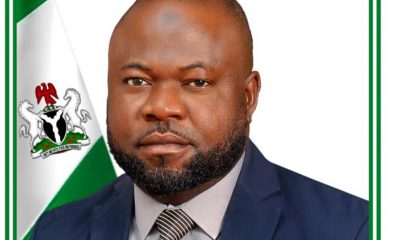
 interview3 weeks ago
interview3 weeks agoNIGERIA MECHANIZED AGRO EXTENSION SERVICE PROJECT, A STRATEGIC MOVE TO ALLEVIATE POVERTY – DR. AMINU ABDULKADIR
-
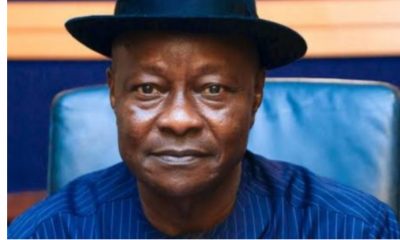
 news3 weeks ago
news3 weeks agoUpdate : Fubara ordered bombing of Rivers Assembly, I am not under duress I resigned, Says ex-Rivers HoS Nwaeke
-

 news1 week ago
news1 week agoNothing new in FBI report on Tinubu, says Onanuga
-
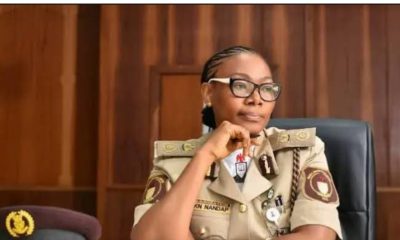
 news3 weeks ago
news3 weeks agoTinubu commended Nandap for her leadership, extends Comptroller-General tenure till 2026, says Onanuga
-
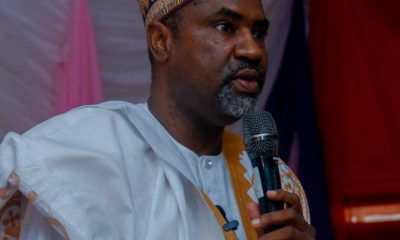
 news5 days ago
news5 days agoAirlin Advocacy Commissions Jos Office, Targets 7m Members By Next Elections,Says Mohammed Gamawa


